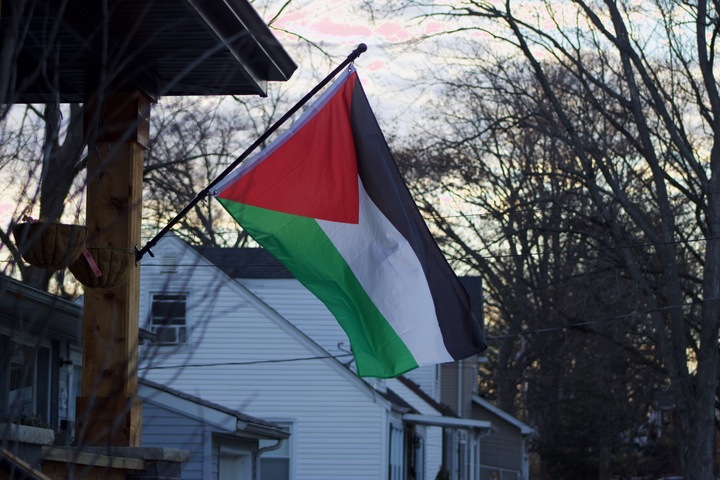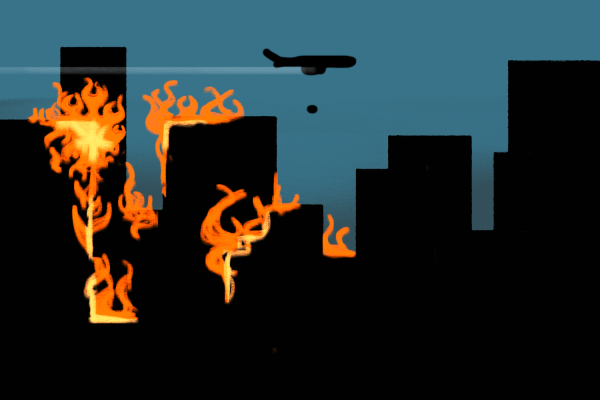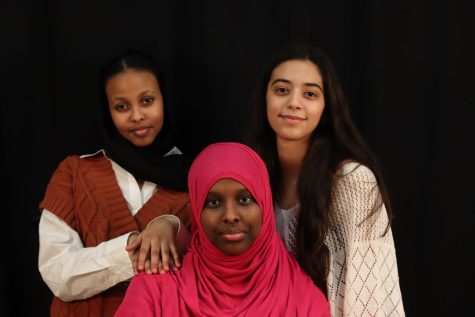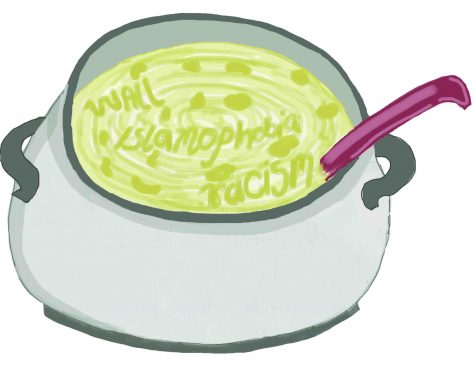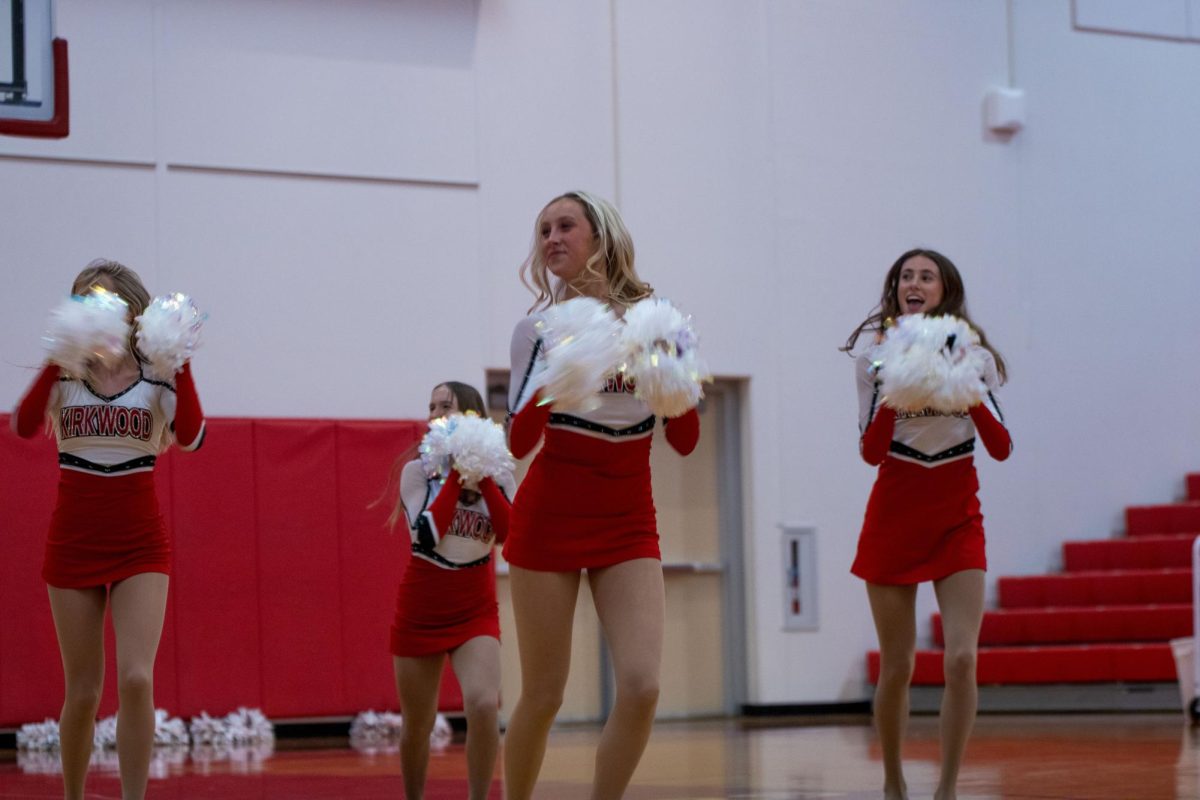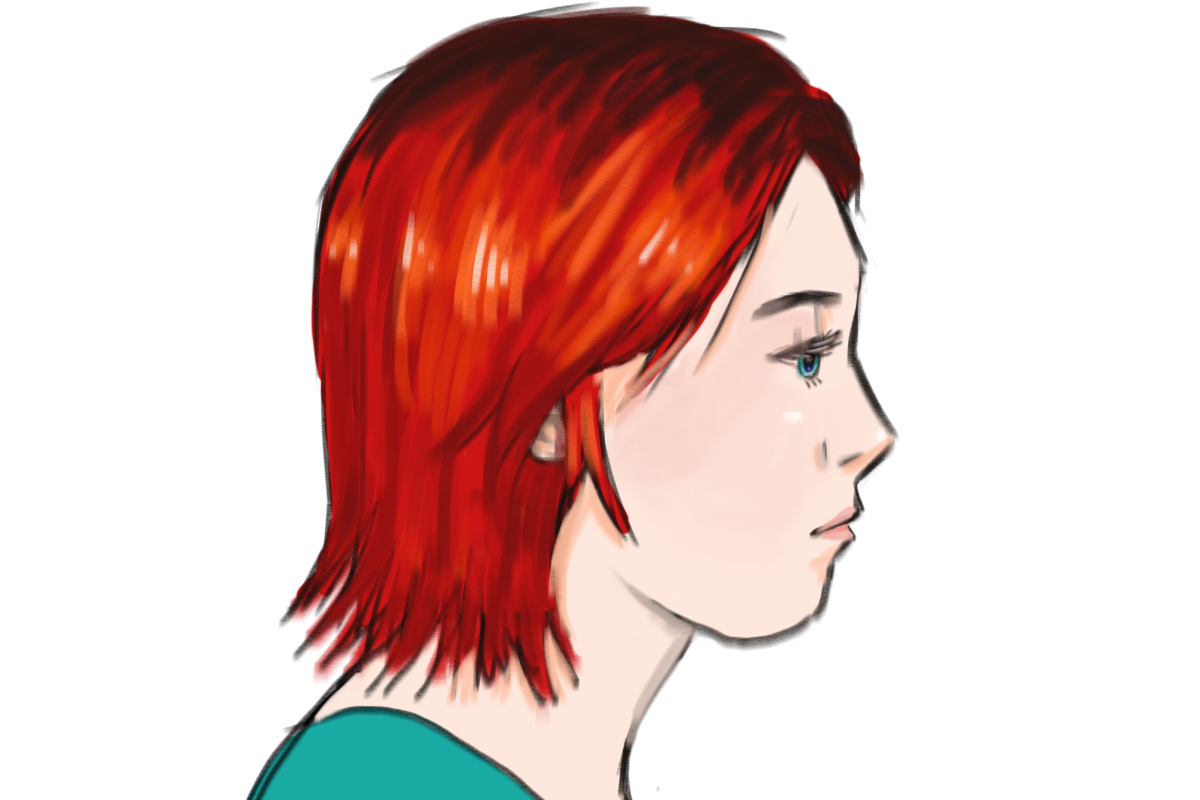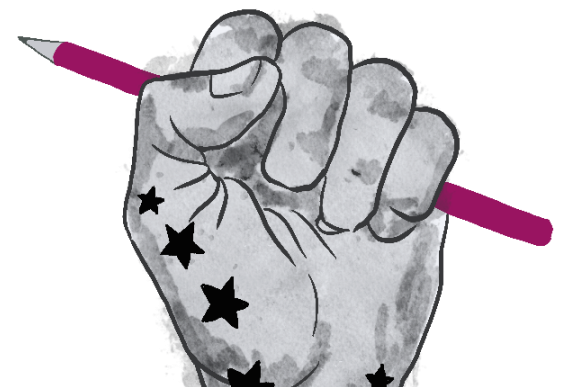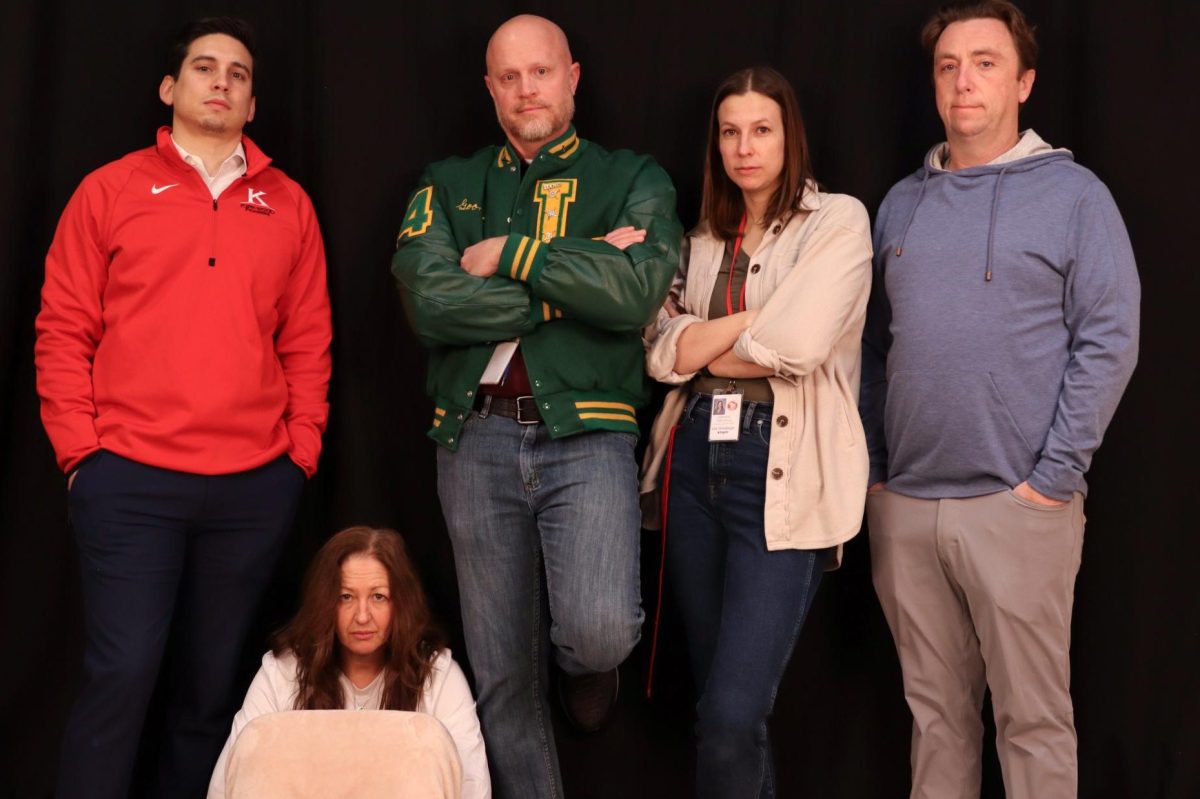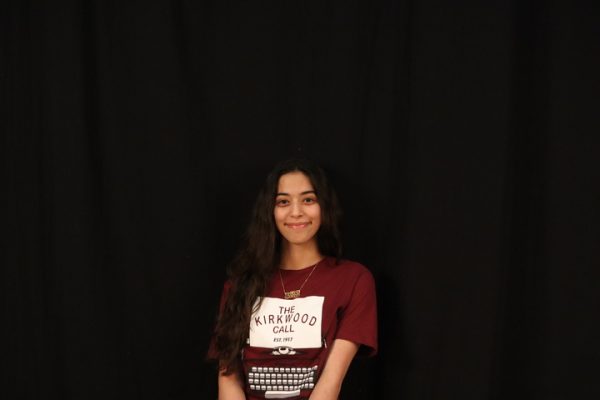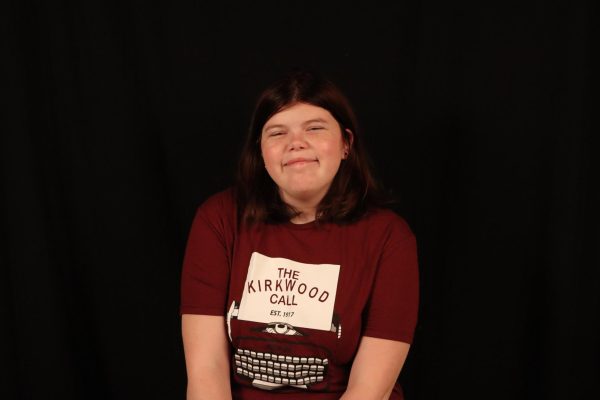*The names Layla and Mahmoud have been used to protect the identity of sources used in this article.
Layla looks out her window, watching as people infiltrate her neighborhood. Her parents and neighbors rush downstairs to prevent them from entering her home. One second later, and her land could have been taken. One second later, and she could have ended up homeless on the street, staring at the place she spent a lifetime in, watching strangers live in a home that once belonged to her. This has been the reality for Palestinians since 1948.
In the 1930s, conflict between Palestinians and Jews intensified when over 100,000 Jewish settlers entered the country in the next two decades, with the Zionist movement aiming to establish a Jewish state in Palestine, according to the National Geographic Society. Then, in 1948, the Nakba (meaning “catastrophe” in Arabic) occurred, which, according to the United Nations, was the mass displacement of Palestinians by the Israelis. Ongoing tensions resulted in the attack of Oct. 7, in which 1,200 Israelis were killed according to NPR, which led to full-scale conflict on both sides. Over the past four months, according to Al-Jazeera, over 30,000 Palestinians have been killed due to heavy bombardment, and cutting off food, medical supplies and electricity in Gaza by the Israeli government. Additionally, more than 30 hospitals (Al-Jazeera) and 390 educational institutions (NPR) in Gaza have been bombed. Conflict is ongoing in the West Bank as well, despite Hamas not being present in those areas. According to a UN report from December, more than 300 Palestinians have been killed in the West Bank, including 79 children.
Over 30,000 Palestinians have been killed due to heavy bombardment, and cutting off food, medical supplies and electricity in Gaza by the Israeli government. Additionally, more than 30 hospitals (Al-Jazeera) and 390 educational institutions (NPR) in Gaza have been bombed.
Layla, senior, was raised in the West Bank and lived there for 12 years. Her village of Turmus Ayya was located in the city of Ramallah, and was frequently attacked by Israeli settlers.
“I was enjoying myself, making some food and looking outside watching nature and the cars passing by,” Layla said. “At the entrance of my village, I started to see Israeli trucks and jeeps. Over 400 armed Israeli settlers went into my village and attacked us. They burned 30 houses, 60 cars and they shot and killed a 27 year-old Palestinian [man], a father of two, besides the others they had injured. That is just daily life for us.”
They shot and killed a 27 year-old Palestinian [man], a father of two, besides the others they had injured. That is just daily life for us.
Layla recalled a time this past summer when her house was almost taken. She said attacks like this happen frequently, and as a result, her family always has to be on the lookout.
“Around 10 Israeli settlers [were] at the fence of my house, trying to get in,” Layla said. “Our neighbors came out of their houses and rushed towards my house to chase [them] away. Within less than five minutes of our neighbors sounding the alarms, the men from my village were by my house and chased away the Israeli settlers. Thankfully, our house was not burned. The whole time, the Israeli occupation soldiers were just standing by the entrance and watching all this happen.”
According to the Council on Foreign Relations (CFR), the U.S. provided Israel considerable economic assistance from 1971 to 2007, and nearly all U.S. aid today goes to support Israel’s military, which is the most advanced in the region. Additionally, the U.S. has agreed to provide Israel with nearly $4 billion a year through 2028, with U.S. lawmakers considering billions of dollars in supplementary funding.
What’s this whole thing about freedom of speech and human rights? There’s no human rights if you’re funding genocide.
— Layla
“Schools are not being funded, [and] our education and healthcare system needs help,” Layla said. “Instead of giving the money to the [American] people, we are using it to kill innocent people. What’s this whole thing about freedom of speech and human rights? There’s no human rights if you’re funding genocide.”
Layla said there is unequal press coverage for Arabs and the standard of being European and white gets more press coverage and sympathy. She said many Palestinian Christians have been killed as well. She compared the conflict to the ethnic cleansing of Native Americans by the colonists, and said it’s not only Palestinians who are experiencing a genocide.
“What’s happening in Palestine is not a religious conflict, it’s a genocide,” Layla said. “There is one happening in the Congo right now, but no one knows about it. [That’s] why it’s called the Silent Genocide.”
The International Court of Justice (ICJ) has taken Israel to court, with South Africa charging Israel with genocide. The court stated Palestinians in Gaza have a right to be protected from acts of genocide and related prohibited acts, according to NPR. However, according to PBS, Benjamin Netanyahu, prime minister of Israel, stated no one can stop Israel’s war against Hamas.
“I don’t think what Israel is doing will end any time soon, even with South Africa’s statement against Israel,” Ahmed Judeh, who used to live in the West Bank, said. “Even if the [International] Court finds them guilty [of genocide], they’ve made statements saying they will not stop no matter what.”
Judeh is from Qusra, in the city of Nablus, located on the West Bank. Before he came to America, he was a photojournalist, and he said his memories in Palestine are “all bad memories.”
“I used to work for an agency [Wafa] that would post my [photos] online,” Judeh said. “There are always problems with the settlements; they always try to attack the [Palestinian] people, especially those who were around the edge of the borders.”
In 2011, Judeh was living on the coast that surrounded Israeli settlements, and he said that was when the worst attack he experienced occurred. He said the imam (equivalent to a priest or rabbi in Islam) used the speakers of the mosque to announce the Israelis were coming to attack. As a photojournalist, Judeh said the first thing he did was grab his camera and head out to take pictures and videos to send to news stations.
“[The Israeli settlers] were attacking [the Palestinian] people,” Judeh said. “The Israeli army came to protect the settlers. They don’t protect us at all. The [Palestinians] started throwing rocks. [My neighbor] was trying to put his kuffeiyh (Palestinian scarf) around his head. Not even three or four minutes after taking his picture while he was alive, he was shot in the chest and died right next to me. I took a picture after he got shot. That moment I will never forget, it’s always in my head.”
He was shot in the chest and died right next to me. I took a picture after he got shot. That moment I will never forget, it’s always in my head.
— Judeh
Judeh said he printed the photo out and brought it with him to America, where he hung it up in his office at home. He said even Palestinian-Americans aren’t safe from the Israeli Defense Force (IDF). The rules for checkpoints protect children 16 and younger from having to walk across the road in the middle of the desert. Despite this, the IDF did not allow his 5-year-old daughter to pass through the checkpoint, forcing him to leave behind his bus and walk with her.
“They broke the rules and decided to not allow my daughter to [pass] through the checkpoint,” Judeh said. “There are many unnecessary actions the Israeli military takes to make things difficult for us. We had all the right documents, but they told me [I] can’t come through this checkpoint [and] have to go around through the other side of the West Bank.”
In addition to being unable to pass through certain checkpoints, Palestinians are also unable to visit the Al-Aqsa Mosque, located in the city of Jerusalem, without a permit. Mahmoud, who is from Baytin in the city of Ramallah, has lived there all his life, but has only been to Al-Aqsa twice.
I shouldn’t need a permit to enter a city in my own country [or] to enter my own mosque.
— Mahmoud
“This is our mosque, it belongs to us [Palestinians],” Mahmoud said. “I shouldn’t need a permit to enter a city in my own country [or] to enter my own mosque. I went to the U.S. embassy that day in Jerusalem, so while [my family and I] were there, we decided to visit the mosque. It was one of the greatest days of my life.”


